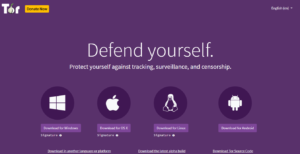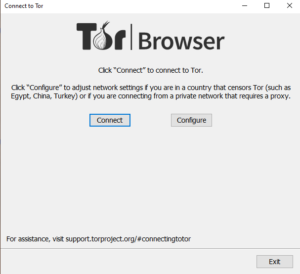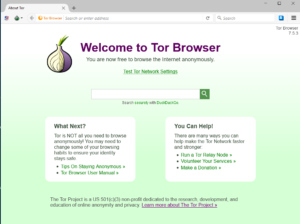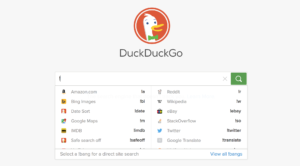How To Access The Dark Web
The internet has become an incredibly essential part of our lives. Few could have imagined the scale at which our daily tasks would depend on seamless access to services like YouTube, Facebook, Google, LinkedIn, Twitter, and Amazon to name a few.
However, it may come as a surprise to most users that this seemingly immense pool of information is barely the tip of the proverbial iceberg. While these websites are more than enough to fulfill the needs of most users and deliver services that are most sought after by the general public, the actual extent of the internet is far more profound.
What does that mean? Well, there exists an entire frontier of the internet that is not as easily accessible as simply going to the URL. This frontier is what is known as the Deep Web.
The Deep Web is, as the name suggests, all the sites that are hidden and cannot be accessed using browsers like Firefox, Chrome or Opera. And if that wasn’t enough to leave you intrigued, there’s a further layer within this frontier known as the Dark Web.
Are Dark Web and Deep Web the Same?
A common misconception, even within circles that claim an interest in this subject but the two have their distinct characteristics.
The Dark Web is the popular name for a collection of websites that operate through hidden IP addresses on encrypted networks. Unable to access them through the traditional be browsers, users have to use specially designed browsers like Freenet, I2P, and most commonly, The Onion Router (TOR).
On the other hand, the Deep Web is the entire section of the internet that remains hidden from the public, this includes sites that serve relatively mundane purposes such as webmail platforms, banking platforms, databases, as well as business intranets. Being on the Deep Web gives them anonymity and security through obscurity that most of these services so desperately need.
In a nutshell, the Dark Web is a small but highly notorious part of the Deep Web.
How Do I Access The Dark Web?
It may sound difficult, but it is easy if you know what you’re doing. The most important tool you’ll need is the Tor browser. It is a network of volunteer relays thoroughly encrypted from users’ internet connections from around the world.
This excessive number of relays provides the evasion that makes Tor browsing anonymous, although at the cost of connection speed. It is understandable considering how the decentralized nature of relays connects the users with all kinds of networks, fast and slow.
Step 1: Get a Good VPN Service
This should be your absolute priority before you start browsing the dark web. You must cover your digital tracks. When getting a VPN for dark web, keep a few simple tips in mind:
- It shouldn’t keep logs
- It should be free of IP, DNS, or WebRTC leaks
- It should accept payment in cryptocurrency
- It should be Tor-compatible
- It should be located in a safe jurisdiction
I’d recommend a service like PureVPN or Surfshark since they fulfill these 5 important criteria.
Step 2: Download Tor Browser
Before you head over to the Tor project’s website to download the service, make sure your VPN service is running. Tor’s URL end with the .onion suffix rather than the customary .com, .net, .org, or .in. This complexity of URLs allows the services to escape detection and avoid any form of DDoS attacks.
Download the service for your device and you’ll see a “Tor Browser” folder at your destination.
Click the “Start Tor Browser” file in this folder.
From here, you’ll see a new window open that’ll give the option to either “Connect” or “Configure“.
Click on the “Connect” option and you’ll see a browser window open.
By default, you’ll be directed to the search engine DuckDuckGo. Think of it as the Google of the Dark Web. DuckDuckGo is meant to add layers of extra privacy and encryption to your internet connection.
You can use a variety of different search engines such as:
- Welcome to Dark Web Links (http://bznjtqphs2lp4xdd.onion/)
- Candle (http://gjobqjj7wyczbqie.onion/)
- not Evil (http://hss3uro2hsxfogfq.onion/)
And from here, the possibilities are endless.
Important Dark Web Sites You Should Know About
The Dark Web is an immense pool. It is filled with content that fills every category. However, it is important the know the most important and useful ones. So, here are some of the best and important Dark Web sites you should know about, in case you ever need them.
Yes, believe it or not, Facebook has a presence on the dark web. However, it’s not for any theatricality or illicit reason. Facebook is currently banned in several countries as a result of tough censorship laws.
If for any reason, users lose free access to Facebook over the regular internet, they can always ensure their continued use through this .onion URL.
Mail2Tor
Your emails aren’t safe…but you already know that. Despite what most mail services want you to think, most of them maintain a complete log of all your emails to show you more relevant ads and search results.
Mail2Tor is the anonymous dark web alternative that can allow you to send and receive emails secured via encryption. Thanks to the entire nature of the dark web, the provider won’t be able to store your IP address either.
ProPublica
The Dark Web is still the most private place you can find on the internet. So, it’s natural that it serves as the haven for all organizations and individuals that care about privacy and online freedom. ProPublica is at the forefront of this fight.
A five-time Pulitzer Prize winner has been instrumental in exposes the crimes of corrupt public officials and business through investigative journalism. Its Tor presence allows its journalists to go about their work without worrying about having their actual identities blown.
SoylentNews
Mainstream media is untrustworthy. It doesn’t matter if it is left-wing or right-wing, they all have their agendas. To push their agenda, they decide what to tell viewers and what not to. In any case, likely, you’ll never see the complete picture of anything.
This why SoylentNews is so important. It is a user-generated news site that allows actual residents from all over the world to tell the world exactly what’s going on.
The Hidden Wiki
So, you gain access to Tor and the Dark Web. What next? Where do you go? Which site do you visit? This is what The Hidden Wiki does. Think of it as the directory of the Dark Web. Since the nature of the Dark Web is complete anonymity and freedom, you’ll find all kinds of .onion sites here.
The CIA
No, this is not a mistake. You may find it hard to believe but Tor was born in a US Navy Research facility. Its purpose was to create a tool allowing US spies in different countries to contact their handlers without compromising their cover online. CIA’s .onion site is meant to act as sort of like Reddit, allowing its operatives to access its resources securely.
On the other hand, a casual Tor user may find it interesting to see just how complicated the CIA’s digital presence and surveillance is.
The Dark Web Is Not a Dangerous Place unless You Make It
It’s a pity that the Dark Web has continuously been portrayed in popular culture as a wretched hive filled with scum and villainy.
It may surprise the average user but some of the Dark Web’s most frequent users are usually whistleblowers, journalists, and activists that have sensitive information to share but cannot do so without revealing their actual identity.
For instance, when Edward Snowden found out about the scale of the NSA’s surveillance of US citizens, he used the Dark Web to transfer information without risking unwanted attention to himself using the Tails distribution.
Similarly, you have probably heard of the seismic revelations made by WikiLeaks over the past decade. It exposed how corrupt despots sanction the death of thousands of their citizens or how Hillary Clinton‘s negligence was directly responsible for the whole Benghazi affair.
WikiLeaks can get their hands on these documents thanks to its Dark Web platform (http://wlupld3ptjvsgwqw.onion/wlupload.en.html) that allows whistleblowers to upload all the documents proving the heinous crimes of dictatorial regimes from around the world.
But, as I mentioned earlier, how a user uses the Dark Web is entirely up to them…and so are the repercussions. As I mentioned earlier, while it is regrettable that most pop culture focuses ONLY on the negative aspect of Dark Web, it is easy to see why.
While it was only operational for 7 months, Playpen quickly became the FBI’s number priority. Before it was ultimately taken down, it was the most prolific child pornography site that had managed to gain 215,000 users and contained millions of sexually explicit images and videos of children as young as 2 months, by conservative estimates. In what is now considered to be the FBI’s most intensive investigation, the agency hosted two of its servers online just to get access to the users’ IP addresses. 900 arrests were made around the world, including the 57-year old Steven Chase, the site’s detestable creator.
But the most famous case of just how unscrupulous the Dark Web is undoubtedly the Silk Road. Born as the brainchild of a libertarian that wanted to trade hard drugs for Bitcoin, the platform grew into a hub for deals that involved weaponry, assassination contracts, counterfeit currency, and identity theft. By most accounts, in its heyday, the platform hosted deals worth $2 billion a day.
That is until owner Ross Ulbricht, known on the Dark Web as Dead Pirate Roberts was arrested for giving out 5 assassination contracts. How did law enforcement finally catch up to him? Well, it turns out Ulricht had made a post on Reddit years ago talking about the platform…using his real email address.
Is It completely Anonymous?
In short, not anymore.
This became increasingly clear when those two cases above came to light. While I, myself and this website do not condone what the perpetrators of these platforms were doing, it is clear how the FBI managed to bring these sites down i.e. mass hacking.
In 2014, the FBI partnered with researchers at the Carnegie Mellon University to develop an exploit based out of a Firefox JavaScript. It was able to successfully decrypt the identity of several Tor users on these platforms that the FBI was monitoring.
Additionally, in 2017 We Are Segment, a security firm, informed Tor of a vulnerability in the browser that affected primarily Mac and Linux users. Known as TorMoil, it caused users’ IPs to be leaked when accessing URLs beginning with file:// rather than HTTP:// or HTTPS://. Tor was able to eliminate the vulnerability by rolling out an upgrade. But it had become evident that Tor and by extension, the Dark Web, were no longer as safe or anonymous as it once was.
Final Thoughts
It is becoming increasingly difficult to maintain your digital anonymity online. For years, the Dark Web was the pinnacle of anonymous user activity. However, that is changing. Aside from being anonymous online, users need to be responsible as well. Use the Dark Web with extreme caution and most importantly, do not break the law.





